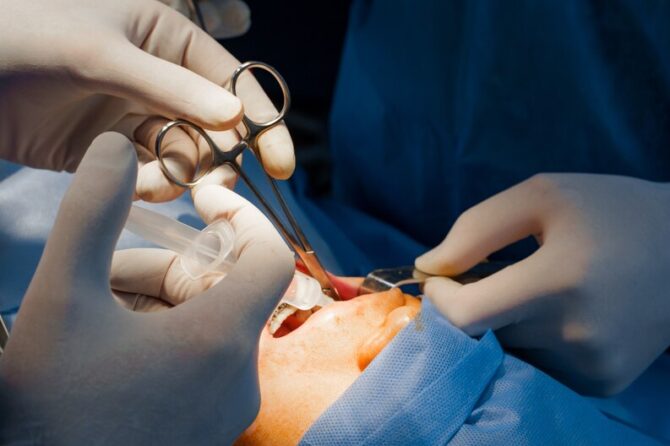
The Importance of Maxillofacial Surgery
Maxillofacial surgery, also known as oral and maxillofacial surgery (OMFS), is a specialized branch of medicine that focuses on treating conditions and injuries related to the face, jaw, mouth, and neck. This comprehensive field combines expertise from dentistry, medicine, and surgery to address a wide range of functional and aesthetic concerns. In this blog post, we will explore the fascinating world of maxillofacial surgery, its scope, common procedures, and the conditions it can effectively treat.
Understanding Maxillofacial Surgery:
Maxillofacial surgery encompasses various procedures that involve the diagnosis, treatment, and management of conditions affecting the facial structures. It covers a broad spectrum of oral and facial surgeries, including corrective jaw surgery, facial trauma reconstruction, dental implant placement, removal of tumors and cysts, treatment of congenital facial deformities, and management of temporomandibular joint (TMJ) disorders, among others. Maxillofacial surgeons undergo extensive training, often completing both medical and dental degrees, followed by specialized surgical residency programs.
Common Procedures and Treatments:
- Corrective Jaw Surgery (Orthognathic Surgery): This procedure is performed to address structural abnormalities in the jaw, such as malocclusions (misaligned bite) or jaw size discrepancies. By repositioning the jaws, orthognathic surgery improves bite function, facial symmetry, and overall aesthetics.
- Facial Trauma Reconstruction: Maxillofacial surgeons are skilled in treating facial injuries resulting from accidents, falls, sports-related incidents, or assaults. They can repair fractures of the facial bones, including the jaw, cheekbones, nose, and orbits (eye sockets), restoring both function and appearance.
- Dental Implant Surgery: Dental implants are a popular and effective solution for replacing missing teeth. Maxillofacial surgeons have the expertise to surgically place dental implants into the jawbone, providing a stable foundation for prosthetic teeth and restoring the patient’s ability to chew and speak confidently.
- Treatment of Temporomandibular Joint (TMJ) Disorders: The TMJ is the joint that connects the jawbone to the skull. TMJ disorders can cause pain, difficulty in jaw movement, and other symptoms. Maxillofacial surgeons can diagnose and treat these conditions, offering both surgical and non-surgical options to alleviate pain and restore normal jaw function.
- Removal of Tumors and Cysts: Maxillofacial surgeons play a crucial role in diagnosing and treating oral and facial tumors, including benign growths, cysts, and certain types of cancer. They carefully plan and perform surgeries to remove these abnormalities while preserving the aesthetics and functionality of the affected area.
Benefits and Considerations:
Maxillofacial surgery offers numerous benefits to patients, including improved oral health, enhanced facial aesthetics, restored facial function, and increased self-confidence. However, it is essential to understand that these procedures are complex and require thorough evaluation, diagnosis, and treatment planning. Patients should consult with a qualified maxillofacial surgeon who can provide comprehensive care and guide them through the process.
Recovery and Postoperative Care:
Recovery following maxillofacial surgery varies depending on the specific procedure performed. It is common to experience swelling, discomfort, and restricted jaw movement initially. The surgeon will provide instructions on pain management, diet, oral hygiene, and any necessary follow-up appointments. It is crucial to follow these instructions diligently to ensure proper healing and optimal results.
Maxillofacial surgery plays a vital role in improving the function, aesthetics, and overall well-being of individuals with oral and facial conditions. With its multidisciplinary approach and advanced techniques, this specialized field offers a wide range of treatments
Leave a reply
Leave a reply